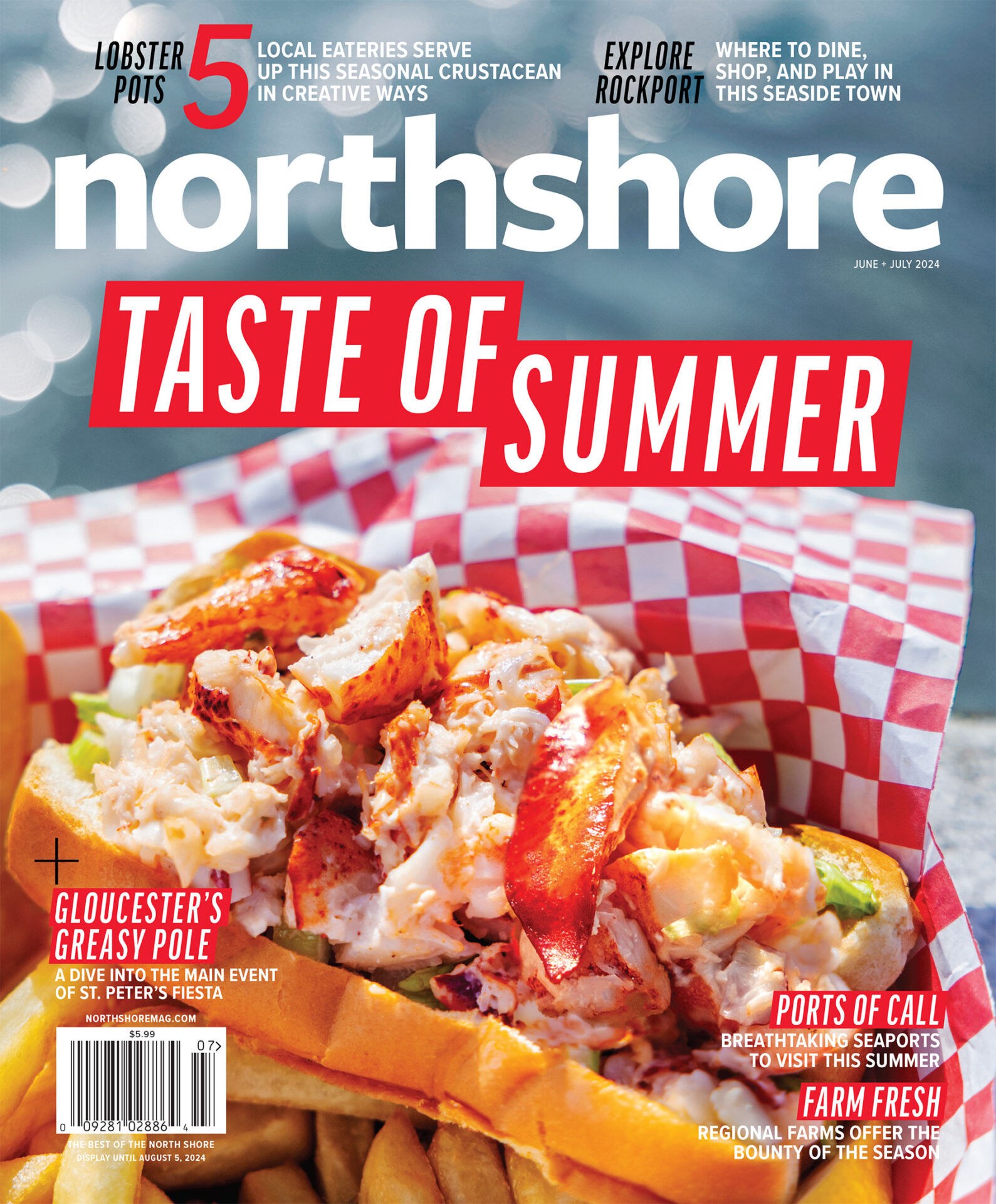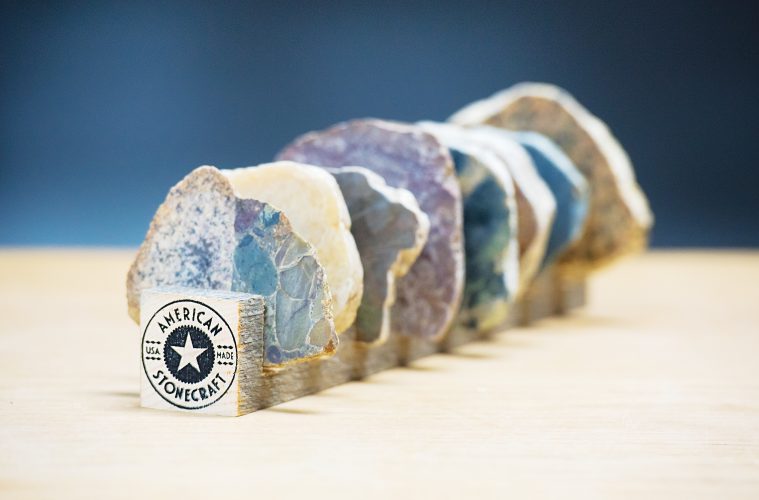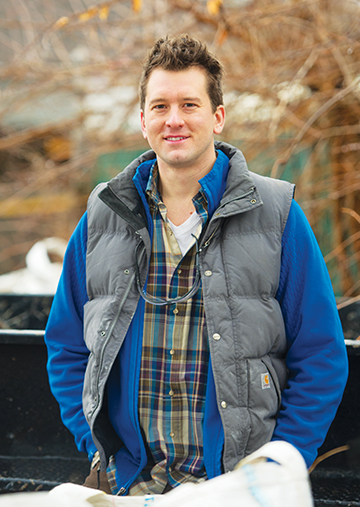Some local farmers are reaping a surprising product from the soil— high-end tableware. Turns out a bumper crop of rocks can be made into desirable objects for folks who live far from the stone walls that crisscross New England.
For Gerald Croteau III, artist and founder of American Stonecraft,that realization came at a relative’s stoneworks yard. Croteau grew up around rocks, spending summers moving fieldstones at his grandfather’s masonry business, but it wasn’t until he was home visiting family that he realized his training in economics could cast dull, dirty stones in a new light. He saw a boulder cut open at his relative’s shop and couldn’t believe how beautiful it was on the inside.
“I saw a way to add value to the fieldstones,” Croteau says. “I liken it to a farmer who has a patch of wild raspberries, then someone comes along and says, ?Try this jam.’” Croteau started slicing apart rocks from friends’ backyards and polishing them into “food slabs”—stunningly tactile slices of polished stone for serving food. The useful works of art quickly gained a following, through Croteau’s dogged attendance at trade shows and a keen understanding of marketing and the importance of a good story. American Stonecraft tableware is now available in shops around the country and as far afield as Australia.
|
Farmers have long known they can sell their rocks, which rise up every spring when frost heaves new stone from deep underground, to masonry companies and for fill, which pays between $50 and $100 per ton for approximately 80 rocks. American Stonecraft can take that same amount of stone and turn it into $1,000 or more in profit for the farmer. And every extra source of revenue counts for small family farms in the area.
“Land is really expensive around here,” Croteau says. “So farmers have to be versatile. Just selling vegetables or eggs is not going to move the needle. But if they can sell an extra $1,000 of merchandise a year, it makes a big difference.”
Croteau found his first farmer on Craigslist, and since then it has been mostly word of mouth. American Stonecraft removes the stones and pays the farmers with a set amount of finished product—tableware that the farmer can sell at a farm stand or through a CSA, or even just use as gifts for friends.
Each food slab is unique, with rough edges sealed with a resin to keep them from chipping. Shopping American Stonecraft’s showroom is like visiting a granite wholesaler on a very small scale—the variety of colors inside New England’s fieldstone is quite amazing.
“Part of why it works so well is stones from the same farm are worlds apart and can appeal to lots of [tastes],” Croteau says. Indeed, a single location can yield up everything from brownish yellow slabs sparkling with mica to more subdued grays with small veins running through them. Rocks can have garnets embedded in them or display a reddish hue.
Another reason it works so well is that Croteau is schooled in the power of a good story and makes sure his wares tell one. Each food slab is stamped on the back with the name and location of the farm where the rock was found, and his website provides a map with links to the farms. North Shore farms like Mill River Winery in Rowley, Turkey Hill Farm in Haverhill, and Gibbet Hill Farm in Groton are among those turning their rocks into art.
“I love farms and open space, and I don’t love sub-divisions,” Croteau says, adding that he feels like his business may in some small part be helping struggling farmers hold on to their land.
Croteau’s business training has him handling sales and management, while a small staff crafts the pieces. But he still gets a thrill when he can run a massive saw through a rock to see what’s inside. “The heart of art is to find something new to put out there,” he says with a grin. americanstonecraft.com


 Gerald Croteau III
Gerald Croteau III